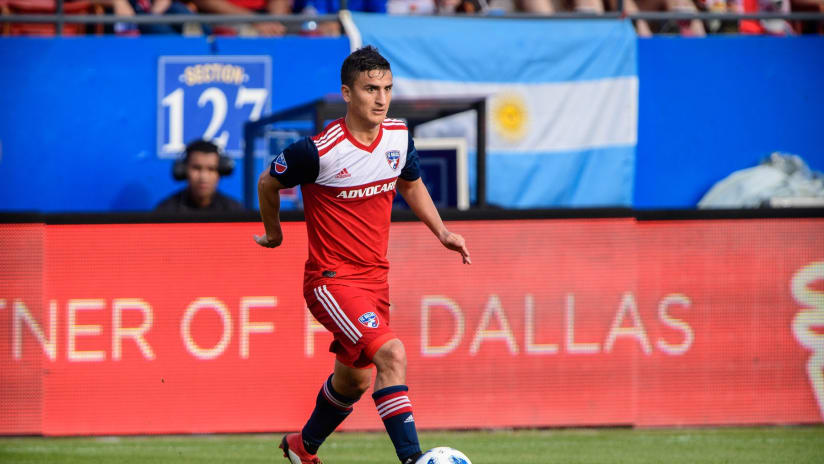Hindsight will always see the 2017 Major League Soccer season as one dominated by Toronto FC’s narrative, that of a treble-winning champion who, seemingly from the season’s opening kickoff, was cast as the league’s best team. Ten games into last season, though, that wasn’t actually the case. There was another team, undefeated through mid-May, that had MLS followers counting their trophies before they actually came.
FC Dallas didn’t just enjoy a strong spring, either. Through the first 19 games of the 2017 campaign, Oscar Pareja’s team only lost three times, and having claimed both the Supporters’ Shield and U.S. Open Cup the previous year, Dallas looked primed to snare the franchise’s first league title.
Then came the most surprising collapse in MLS history. Offsetting spring’s unbeaten run, Dallas went winless in 10 during the middle of the season, failing to get full points from any game between July 22 and Sept. 27. Over season’s final 15 games, the league favorite went 2-7-6, fell from first place to seventh, and missed the playoffs for the first time under Oscar Pareja.
During that stretch, Dallas gave up nearly two goals per game (1.93) while scoring just over one (1.06). Six times, they lost by more than one goal, including embarrassing 4-0 loses to Vancouver (July 29) and Seattle (Oct. 22). A 5-1 win over the LA Galaxy to close the season makes the numbers look better than the underlying form, because over the last three months of the season, FC Dallas was broke.
That leaves their current state an open question. Dallas looked restored in preseason and has put in strong performances in their first two games of the MLS season: a draw with Real Salt Lake ,and a three-goal win over Seattle. But the team also flamed out in CONCACAF Champions League, losing in the Round of 16 to a Panamanian club (Tauro FC) that fell to Club América, 7-1, in the quarterfinals.
That FC Dallas made relatively few changes this offseason only adds to the confusion. Had they disbanded and went for a rebuild after their disappointing finish, we’d be talking about the lessons of last season, and how the club’s matured academy is being tasked with getting its first team on course. Conversely, if the team had restocked this offseason and made a bunch of marquee signings, we would call it a reload and suspect Dallas was intent on getting back to its 2016 level.
In a way, though, that’s what the club has done, even if their signings aren’t household names. Though Dallas traded aspiring U.S. international Walker Zimmerman this offseason, it signed former Juventus defender Reto Ziegler to fill the gap next to all-star Matt Hedges. Further to the left, Bulgarian international Anton Nedyalkov was brought in to take up the fullback’s spot, while Colombian Santiago Mosquera was signed as a Designated Player to upgrade that flank’s attacking role.
As with the rest of the team’s performance, the early returns on those signings have been mixed. The reworked defense, which is also starting academy product Reggie Cannon on the right, has given up a respectable four goals in as many competitive games, though the team did play 53 minutes against 10 men on Sunday versus Seattle. In attack, though, Mosquera is already losing time to Roland Lamah, who scored twice against the Sounders.
Beyond the new editions, Dallas still has the weapons that made the team so formidable for most of last season. Forward Maxi Urruti and right wing Michael Barrios are the perfect combination of speed and work rate to take advantage of Mauro Diaz’s artistry on through balls. Midfielders like Carlos Gruezo, Jacori Hayes and Kellyn Acosta guarantee that the team always supports that attack with a strong double pivot, while Hedges has established himself as one of the best center backs in the league.
At its core, this is still the team that had so much success in 2016. But it is also the team that collapsed so surprisingly last fall. And while the Timbers may hope that last year’s wayward group is the one they’ll face Saturday in Dallas (12:30pm PT, UniMás, Univision Deportes and Twitter), Portland must also be prepared to face one of MLS’ toughest opponents.











